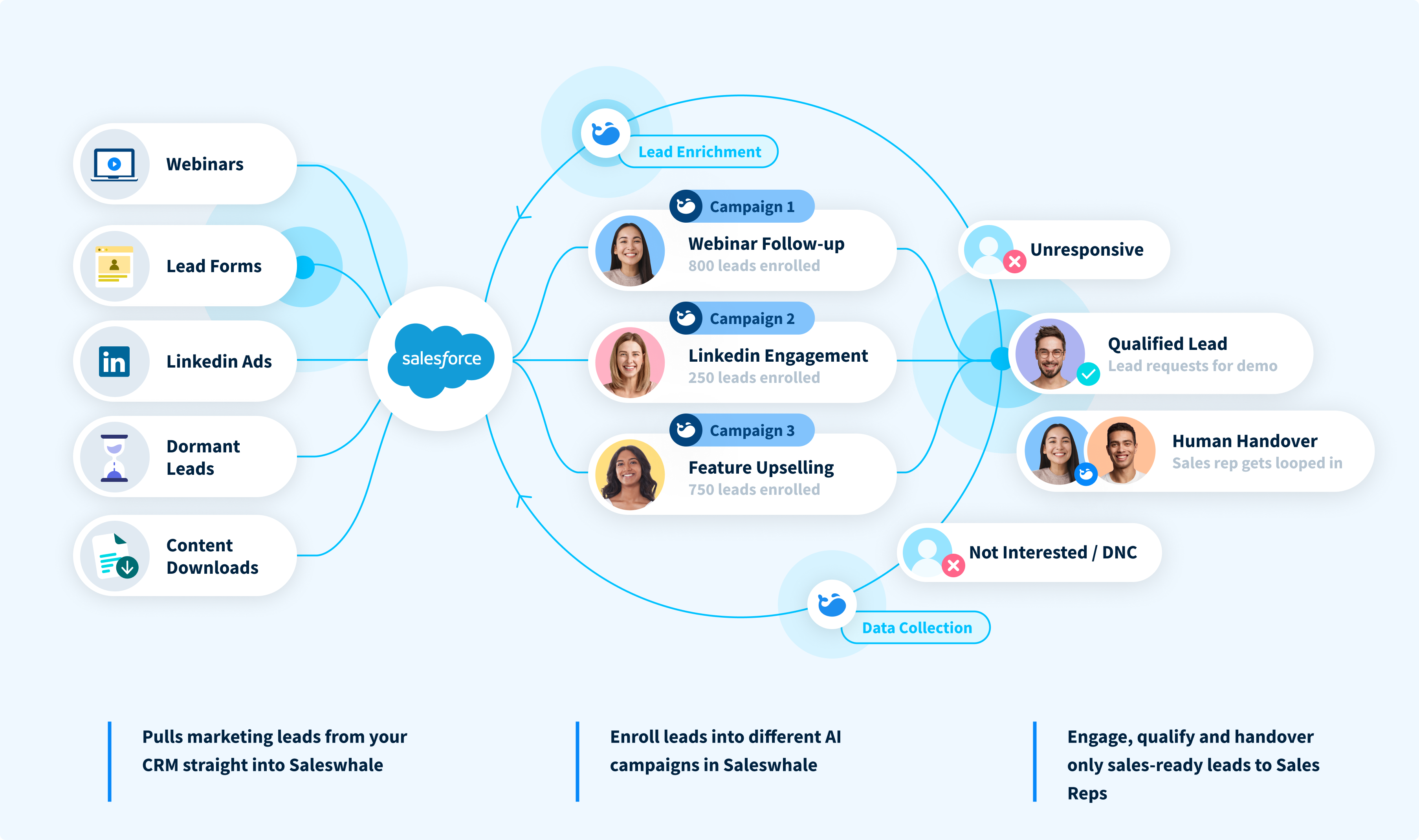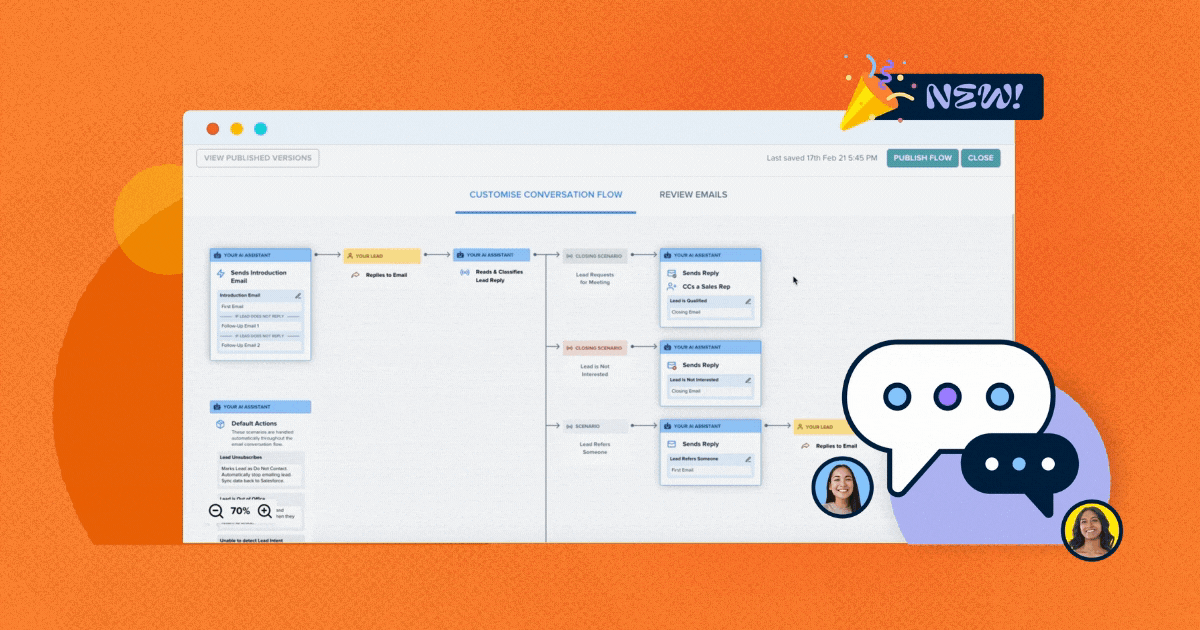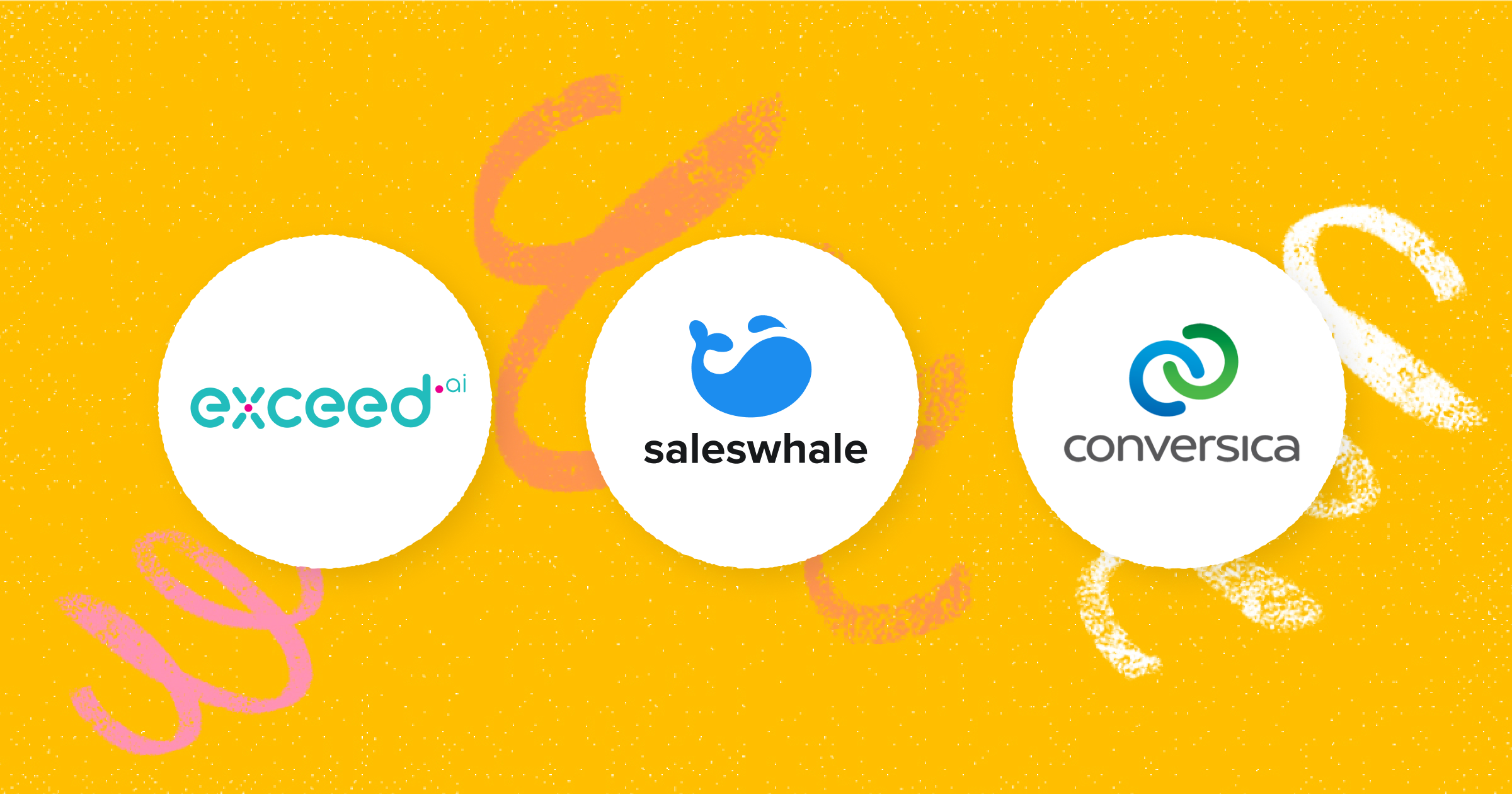Saleswhale Blog | 7 Min Read

This was my worst nightmare as a marketing leader.
Gabriel, let's just put it this way. I have no expectations of marketing."
I could feel my chest tighten, and my breath catching in my throat.
"I really don't expect anything from marketing," my sales account executive repeated. "And I would prefer to just do my own outbound hunting."
This conversation happened almost a year ago. But to this day, it's seared into my memory.
How did things ever get to this state?
I call this the deadly ping-pong match of death.
It's a blame game where Marketing and Sales blame each other.. and it usually begins like this:
Sales: "There aren't enough leads."
Marketing: "There are, but you are just not following up with them."
Sales: "We are following up with them. The SQL acceptance rate is garbage."
Marketing: "Sending a couple of emails to schedule a demo? I don't consider that following up."
Sales: "We are not getting 70% of our pipeline from marketing."
Marketing: "We are hitting our MQL numbers, which should easily allow you to hit 70% pipeline if you were doing your job."
Sales: "But the MQLs are low quality. Look at the low connect rates."
Marketing: "The connect rates are low because you guys are lazy."
Sales: "We need to invest more in top of the funnel."
Marketing: "No, we need to invest more in data infrastructure, lead handling, and bottom of the funnel."
Sales: "Lots of deals end up in closed-lost due to No Decision."
Marketing: "That's because you guys don't know how to sell the value proposition."
Sales: "Our messaging isn't clear or consistent."
Marketing: "Our messaging is fine, the CEO loves it."
Sales: "We need to get better at marketing."
Marketing: "We need to get better at sales."
Does the above sound familiar? Once this ping-pong match starts, it's almost impossible to stop.
Partisan animosity is stirred up. Emotions run high.
With each back-and-forth volley, the walls close in. And these are walls with long, sharp, embedded metal spikes.
Often, the struggling sales & marketing teams are fired. Sometimes, the CMO even resigns in anticipation of being terminated. The VP Sales usually goes down guns blazing as he/she is terminated by the Board.
This mess usually happens in public. It is clearly visible to the entire organization, the Board, and sometimes, even customers.
A few months after the gut-wrenching conversation, I decided to go on a spiritual journey.
I cleared my calendar, and scheduled long blocks of time to think, and to reflect.
I reached out to over 100 marketing and demand generation leaders and interviewed them (separate blog post topic on the learnings).
The sessions were part enlightenment, part cathartic, part therapy group sessions.
I spent an entire weekend with Calm.
Then a controversial opinion slowly dawned upon me -
Marketing and sales alignment is actually a Marketing problem.
And it's up to Marketing to own the problem, and to fix it.
I know this wouldn't make me popular with fellow marketers reading this. But hear me out.
The problem for many marketers, like myself, is that we confuse lead generation and demand generation.
We think in terms of leads and MQLs.
But herein lies the danger.
Marketers that focus on MQLs end up doing the wrong things in order to achieve the metrics.
Having marketing activity that is tied to leads, tempts us into short-term bad marketing behaviours.
I'll raise my hand and admit that I'm guilty of this. Especially during the end of a fiscal quarter, when I have to meet my MQL goal.
Here's the thing.
As a marketing team, we could be meeting our MQL goals. But if leads are not converting into qualified pipeline for our Sales team... that's a fail.
"Here's a rando who requested for a demo."
"Here's a tradeshow lead who agreed to have their badge scanned in exchange for our socks."
"Here's a lead who downloaded an eBook, and visited our website twice in 24 hours."
"This person clicked on our ad on LinkedIn."
I realized that passing bad leads to our Sales team absolutely killed Marketing's credibility.
No sales rep wants to follow up on the 101th lead - when the first 100 didn't close.
Like the boy who cried wolf, the Sales team just stopped taking our leads seriously.
They stop following up religiously.
They were no longer fired up and excited to jump all over it, when we handed them a lead.
Once I had this epiphany, I decided to change things.
The first step is to change the metrics by which Marketing measured ourselves, and our contributions.
We will no longer measure ourselves by leads or MQLs generated.
Instead, we would align on Stage 2 qualified pipeline as our top KPI and shared goal.
We would also track other lagging metrics that aligned to Sales, like:
Late-stage pipeline
Bookings
Inbound revenue contribution
Sales cycle length
Win rate
Now, this doesn't mean that we stopped tracking MQLs internally amongst the Marketing team.
We simply stopped talking about them with Sales.
It's just like how engineering teams don't talk about the number of lines of code they shipped.
What matters is features shipped with customer impact.
Similarly, we started to view MQLs as an abstraction.
Instead of MQLs, we focused on talking about pipeline, and bookings with the Sales team, and with the Board. And how Marketing could help.
Now, shackling ourselves to revenue wins, also means taking responsibility for revenue losses. And that's OK.
Nothing gets fixed, if we are constantly playing a blame game.
The second step, was for us to focus on generating demand. And not generating leads.
A lot of people confuse the above.
The core difference between demand generation, and lead generation, is our intentions as marketers.
Is the intention of our marketing campaigns to collect contact information, so we can pass them to a sales person?
Or is the intention to educate our prospects, on the problem space, and why our product makes sense?
Lead gen is an easy way out for marketers.
Run paid ads on eBook downloads, send them lots of marketing emails, wait for a few of them to click on links or visit your webpage, trip the MQL score - and pass them to Sales.
Sounds easy. And straightforward.
But, what's going to happen?
1. Sales are going to waste their time trying to reach out to these leads, only to be met with crickets.
2. The leads jump on preliminary sales calls with your SDR or Sales team, not having the vaguest idea on what you do, and what problem your product solves.
Focusing on lead generation is so 2014-esque marketing.
Buyer behavior has changed drastically over the last 5 years. And the pandemic and shift to work-from-home only accelerated this change.
Demand gen is the hard part.
Being able to market so well, that someone reaches out to you.
And say they want to speak to sales.
And having already educated themselves on the problem space.
And having already 2 use cases in mind for your product when they jump on that first sales call.
It's not easy. In fact, it's really hard.
But this is what sets the best marketers apart.
A lot of people think they are doing demand generation, when they are actually just doing lead generation.
Marketing works way better at creating revenue when we stay disciplined in creating demand, not leads.
Here's a summary of the difference between Lead Generation, and Demand Generation:
| Lead Generation | Demand Generation |
| Short-term | Long-term |
| Self-centred | Buyer-centric |
| MQLs | Pipeline / Bookings |
| Aim to deliver contacts & leads | Aim to create awareness and educate |
| Expect sales team to follow up, and educate un-ready leads | Tee up leads to come to sales team, ready to buy |
| SDR following up with pre-MQLs or MQLs to convert into demos | Hand over hand-raisers, who are ready for a sales conversation |
| Focus on volume of leads | Focus on quality of leads |
| Interruptive CTAs in marketing campaigns | Trying to be helpful, and add value in marketing campaigns |
I hope this article was at least thought-provoking, even if you may ultimately disagree with it. As a fellow marketer, I wish you luck on your marketing journey.


Co-founder & CEO at Saleswhale
Sign up for cutting edge ideas on conversational marketing, AI assistants and martech.

Saleswhale for Salesforce allows you to build powerful automated lead conversion workflows. This allows you to re-engage with your neglected marketing leads at...
19 APR 2021

Demand generation and marketing teams generate more leads at the top of the funnel than ever in this new digital-first world. Saleswhale helps ensure those...
1 MAR 2021

Marketers that focus on MQLs end up doing the wrong things in order to achieve the metrics. So I changed it.
16 JUN 2020

Conversica isn't the only player out there. Learn how Saleswhale and Exceed.ai compare and make an informed decision.
15 APR 2021
By providing your email you consent to allow Saleswhale to store and process the personal information submitted above to provide you the content requested.
You can unsubscribe at any time by clicking the link in the footer of our emails. For information about our privacy practices, please visit our privacy page.